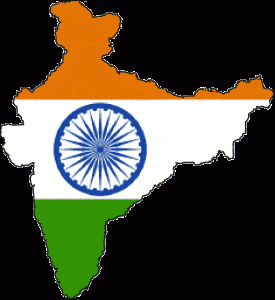India
 There are different kinds of visa available to travel to India. Depending on the purposed of the visit one will be issued a specific type of visa. For a person that wants to visit India to take a course, a student visa will be most appropriate. That particular document is issued for a duration that takes into consideration the time needed to finish the study. That said the validity period cannot exceed 5 years. One key requirement for a student to be granted a visa is to present a letter of acceptance from the university where he got admitted. That university needs to be recognized by the state.
There are different kinds of visa available to travel to India. Depending on the purposed of the visit one will be issued a specific type of visa. For a person that wants to visit India to take a course, a student visa will be most appropriate. That particular document is issued for a duration that takes into consideration the time needed to finish the study. That said the validity period cannot exceed 5 years. One key requirement for a student to be granted a visa is to present a letter of acceptance from the university where he got admitted. That university needs to be recognized by the state.
Pre-requisites to obtain a student visa
For a person to be eligible for a student visa to India, it will be necessary to meet certain conditions. There are 3 different possible cases:
Scholarship from Indian Government
In the case where the student coming is going to be sponsored by the Government of India, the respective Indian missions will take care of the visa after it’s been confirmed that a university will receive him.
Self financed student
For a student that is sponsoring himself it is requires that he presents a letter of admission from the institution where he intends to take the course. The institution producing the letter of admission has to be a recognized one.
Research student
For a person into the field of research willing to take on a project in India, the documents that need to be presented are: synopsis of the research project and a letter of approval countersigned by the sponsoring institution in India. On top of that a no objection certificate provided by the concerned Ministries in India should be included in the application file.
Keep in mind that it may take up to 3 month for your papers to be processed.
For students who don’t have a confirmed admission letter
It happens sometimes that the student, even though has applied for the course, still has not received his admission letter and that can potentially delay the issuance of the visa but there is a way out. The visa applicant can request a Provisional Student Visa which will be issued by the Indian missions abroad. But first the applicants will have to get a provisional letter of admission from the school of interest. It is important to note here that this particular type of visa is valid only for 3 months. Within that period of time the student is expected to present the confirmed admission letter or he will be deported from India.
Step by step process to study in India
1. You first need to make a research to get in touch with the right institutions and make inquiries. In most cases you will have to use the internet to do that. Find out the different schools available in the country and start narrowing your choices based on their reputation.
2. Once you are sure of what you are looking for, you can pick the course your preferred course in the institution of your choice.
3. Go to your institution of choice website and start the application for the course you chose. They will probably require you to provide certain document so get them ready. There is probably an application fee involved in the process, they will tell you the method in which you are supposed to pay.
4. In the meantime you will have to get a provisional admission letter from the LEE consultant. You can rely on that to start the visa application process.
5. You can now present the provisional letter to the Indian Embassy in your country. A provisional visa will then be issues. You can convert it later into a full time student visa after you present the permanent admission letter.
6. To get the permanent admission letter, you will then have to report to the institution for admission, fill an application form and submit it along with these documents (in original along with a Photostat copy):
- Certificate or degree showing you are capable of studying the course
- a list of other examination taken
- a Photostat copy of passport attested by a notary
- a provisional visa if the permanent one has not been issued yet.
Note that you need to included both the original and the Photostat copy of your certificates in this application folder. The original documents will be sent back to you after been used as endorsement for the copies
7. Any student that want to travel to India will have to undergo a medical examination and get a certificate to prove that he is fit. An HIV test is also compulsory and any person that is tested positive will be refused entry to the country. All international students are also required to pay a medical fee of $50. That amount will cover a one year insurance while in the country. The subsequent year, the students will have to renew the insurance.
8. For applicants coming from a country for which English is not the official language it will be required that they sit for n English proficiency test.
9. Once the original certificates have been verified and the applying student produces a certificate showing he is medically fit, the admission will then be confirmed. Of course all the fees involved will have to paid in advance. The student can now start packing to India
10. Within a week of arrival in India the newcomer will have to register his name with the police in the Foreigner Regional Registration Office (FRRO)
Benefits of studying in India
Many people don’t know that India has the second largest education system in the world. One can choose between the 343 universities and 17,000 colleges that offer all kinds of courses within the fields of agriculture, technology, science and medicine.
The schools in India are not only recognized in the country but also outside because they have made significant contribution in areas related to biotechnology and ocean engineering. There are also traditional subjects available like art, chemistry and mathematics where Indian institutions are known to play a leading role.
Even when it comes to space technology, the country has been very much involved in it. India has managed to produce and launch indigenous satellites and develop nuclear energy for peaceful use. A very high number of IT professionals working around the world today are trained in India. Today the Indian nation has been brought to the forefront as a technology advanced one. This explains why a lot of people in developing countries are willing to go there to further their studies.
Choosing India is definitely a good choice, you will not regret it.
Universities in India









